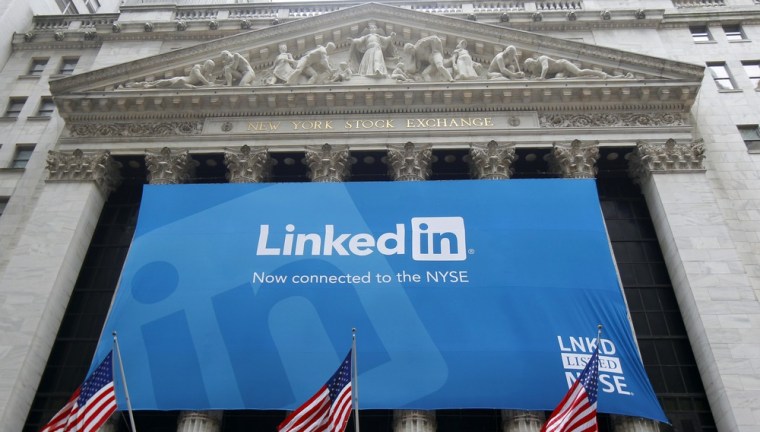POP!
LinkedIn has just opened up 90 percent, a huge pop.
And this comes after LinkedIn's bankers jacked up the IPO price by 30 percent given strong demand by institutional investors?
Did LinkedIn's investment bankers screw the company's investors by underpricing the IPO and greasing the palms of the big institutional money managers who bought ahead of time?
Maybe. But probably not.
The IPO's underwriters, Morgan Stanley, Merrill Lynch and Allen & Company, have a lot riding on this deal. LinkedIn founder Reid Hoffman is an investor in Facebook and Zynga, the two other hot upcoming Facebook IPOs. Morgan Stanley's arch-rival Goldman Sachs already has the inside track on the Facebook IPO, thanks to having invested in the company, but nothing says Morgan Stanley can't be co-lead.
Except, of course, if Mark Zuckerberg asks his friend Reid how the LinkedIn IPO went and Reid says "Man, Morgan Stanley completely screwed us, we could have gone public at $85!"
In fact, it's probably because they were AFRAID of having a pop that they upped the price early on to mop up demand.
But here's the thing. Along with designer handbags,stock is the only good where demand goes up with price.
Economics 101 says that when demand for something limited is high, the price will go up, which will lower demand to match the supply. But that's not how the stock market works, is it? When the price gets high, more people buy, and the price gets higher.
Excitement about the LinkedIn IPO was always high but it started becoming feverish after LinkedIn's underwriters bumped it up to 40. "There's so much demand! It means it's going to be a huge IPO!" Which, of course, became a self-fulfilling prophecy. A person close to big investors told us that they couldn't even get shares in the IPO because it was so oversubscribed.
Wall Street self-dealing between investment bankers and investors play a part in IPO pops. But so does simple human nature.
More from Business Insider:
